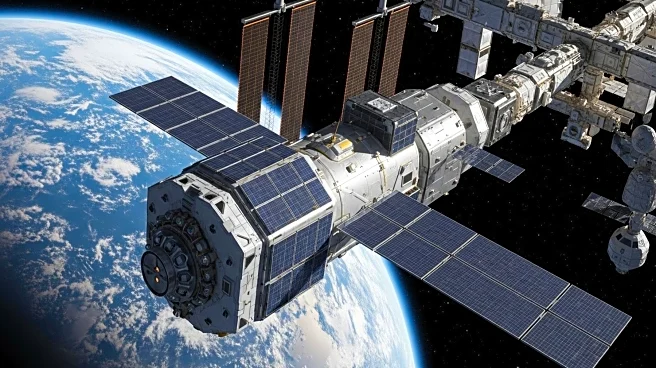What's Happening?
Northrop Grumman's upgraded Cygnus spacecraft, Cygnus XL, has successfully launched on a SpaceX Falcon 9 rocket, marking a record-setting resupply mission to the International Space Station (ISS). The mission, known as NG-23, is delivering 10,827 pounds of cargo, the heaviest load ever transported to the ISS by a commercial resupply mission. The Cygnus XL features a larger cargo module, providing 33% more capacity than previous versions. This increased capacity allows for more scientific equipment and supplies to be delivered per mission, optimizing costs for NASA.
Why It's Important?
The successful launch of the Cygnus XL represents a significant advancement in commercial space logistics, enhancing the ability to support the ISS with larger payloads. This development is crucial for ongoing scientific research and the sustainability of the space station's operations. The collaboration between Northrop Grumman and SpaceX also demonstrates the growing role of private companies in space exploration and supply chain management, potentially reducing costs and increasing efficiency for NASA and other space agencies.
What's Next?
The Cygnus XL is expected to arrive at the ISS, where NASA astronaut Jonny Kim will use the station's robotic arm to capture and dock the spacecraft. The success of this mission could lead to more frequent and larger resupply missions, further supporting the ISS's scientific endeavors. Additionally, the increased capacity of the Cygnus XL may pave the way for future missions beyond the ISS, as NASA and its partners continue to explore deeper space missions.









